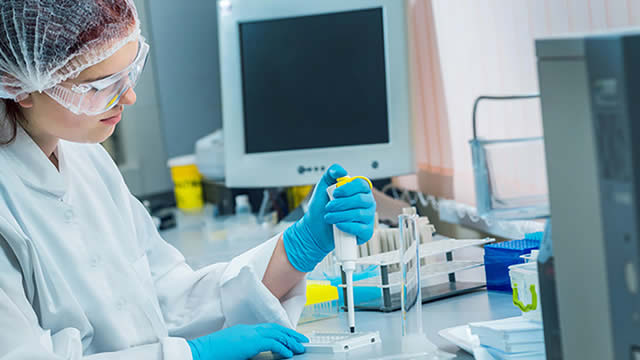
Prime Medicine Inc. (PRME)

Prime Medicine, Inc. (PRME) Discusses Liver Disease Franchise Strategy With Focus on Wilson Disease Transcript
Prime Medicine, Inc. ( PRME ) Discusses Liver Disease Franchise Strategy With Focus on Wilson Disease November 12, 2025 8:00 AM EST Company Participants Gregory Dearborn Allan Reine - CEO & Director Mohammed Asmal Conference Call Participants Michael Schilsky Maurice Raycroft - Jefferies LLC, Research Division Samantha Semenkow - Citigroup Inc., Research Division Troy Langford David Nierengarten - Wedbush Securities Inc., Research Division Yu He - H.C. Wainwright & Co, LLC, Research Division Silvan Tuerkcan - Citizens JMP Securities, LLC, Research Division Soumit Roy - JonesTrading Institutional Services, LLC, Research Division Presentation Gregory Dearborn Good morning, everyone, and welcome to Prime Medicine's virtual event to discuss our liver disease franchise and strategy focused on Wilson disease.

Prime Medicine, Inc. (PRME) Reports Q3 Loss, Lags Revenue Estimates
Prime Medicine, Inc. (PRME) came out with a quarterly loss of $0.32 per share versus the Zacks Consensus Estimate of a loss of $0.28. This compares to a loss of $0.44 per share a year ago.

Prime Medicine, Inc. (PRME) Reports Q2 Loss, Lags Revenue Estimates
Prime Medicine, Inc. (PRME) came out with a quarterly loss of $0.41 per share versus the Zacks Consensus Estimate of a loss of $0.36. This compares to a loss of $0.46 per share a year ago.

Prime Medicine, Inc. (PRME) Now Trades Above Golden Cross: Time to Buy?
After reaching an important support level, Prime Medicine, Inc. (PRME) could be a good stock pick from a technical perspective. PRME recently experienced a "golden cross" event, which saw its 50-day simple moving average breaking out above its 200-day simple moving average.

Prime Medicine: Pressing Forward With Lead Liver Targeting Indications
Prime Medicine, Inc. achieved strong early data in CGD with PM359, surpassing efficacy thresholds, but is pivoting to larger in-vivo gene editing liver disease targeting opportunities. PRME is prioritizing in-vivo gene editing therapy programs targeting Wilson's Disease and Alpha-1 Antitrypsin Deficiency, with IND filings expected in H1 and mid-2026, respectively. These new programs use in-vivo LNP delivery, target larger markets, and could provide substantially better advantages for PRME over ex-vivo gene editing.

Prime Medicine, Inc. (PRME) Reports Q1 Loss, Misses Revenue Estimates
Prime Medicine, Inc. (PRME) came out with a quarterly loss of $0.40 per share versus the Zacks Consensus Estimate of a loss of $0.32. This compares to loss of $0.44 per share a year ago.

Why Prime Medicine Stock Was Climbing Higher This Week
News of a fresh investigational program was putting some zip into the shares of gene-editing company Prime Medicine (PRME) across recent trading sessions. According to data compiled by S&P Global Market Intelligence, in reaction, bullish investors were propelling the company's stock over 12% higher week to date as of early Thursday evening.

Why Prime Medicine Stock Is Soaring Today
Shares of Prime Medicine (PRME 12.50%) are surging on Thursday. The gene-editing company's stock gained 10.5% as of 2 p.m.

Prime Medicine's Bristol Myers Partnership Boosts Outlook For Gene Editing Therapies
Prime Medicine's proprietary Prime Editing platform offers one-time therapeutic solutions, targeting over 90% of genetic conditions across multiple tissues and development stages. PRME's pipeline highlights PM359 for chronic granulomatous disease and preclinical programs for Wilson's Disease, with clinical data expected in 2025. PRME's strategic collaboration with Bristol Myers provided $55 million in cash upfront, a $55 million equity stake, $3.5B in potential milestone payments, and diversification into ex vivo T-cell therapies.

PRME Stock Rises 11.8% on Collaboration With Bristol Myers
Prime Medicine collaborates with Bristol Myers Squibb for the development of T-cell therapies. Shares gain.

Got $100? Consider Buying These 2 Penny Stocks in October
You've likely heard that penny stocks are high-risk investments, and if so, you've heard right.

Why Prime Medicine Stock Soared Nearly 12% Higher on Monday
Changes are afoot at the company, and investors welcomed them.







